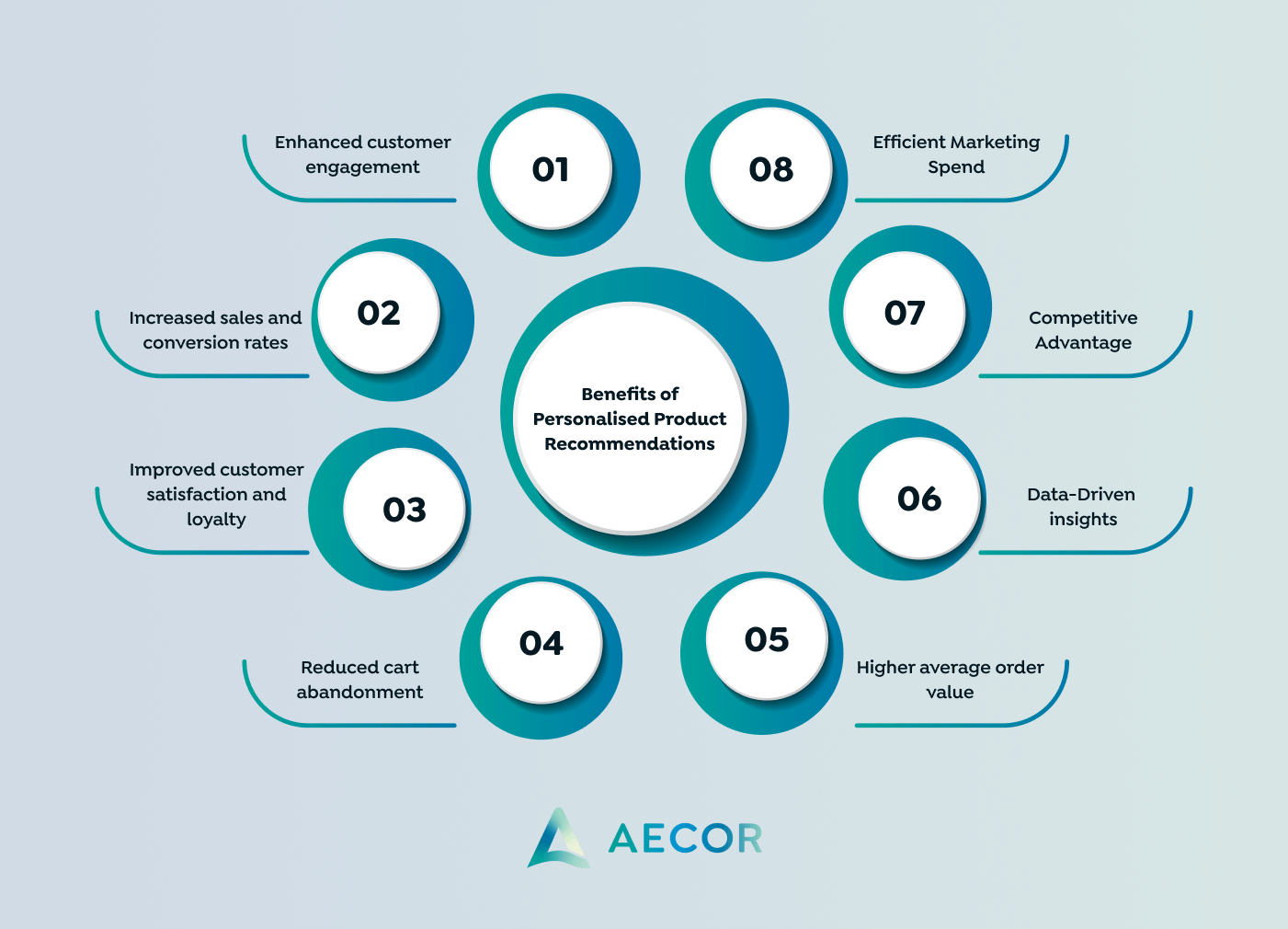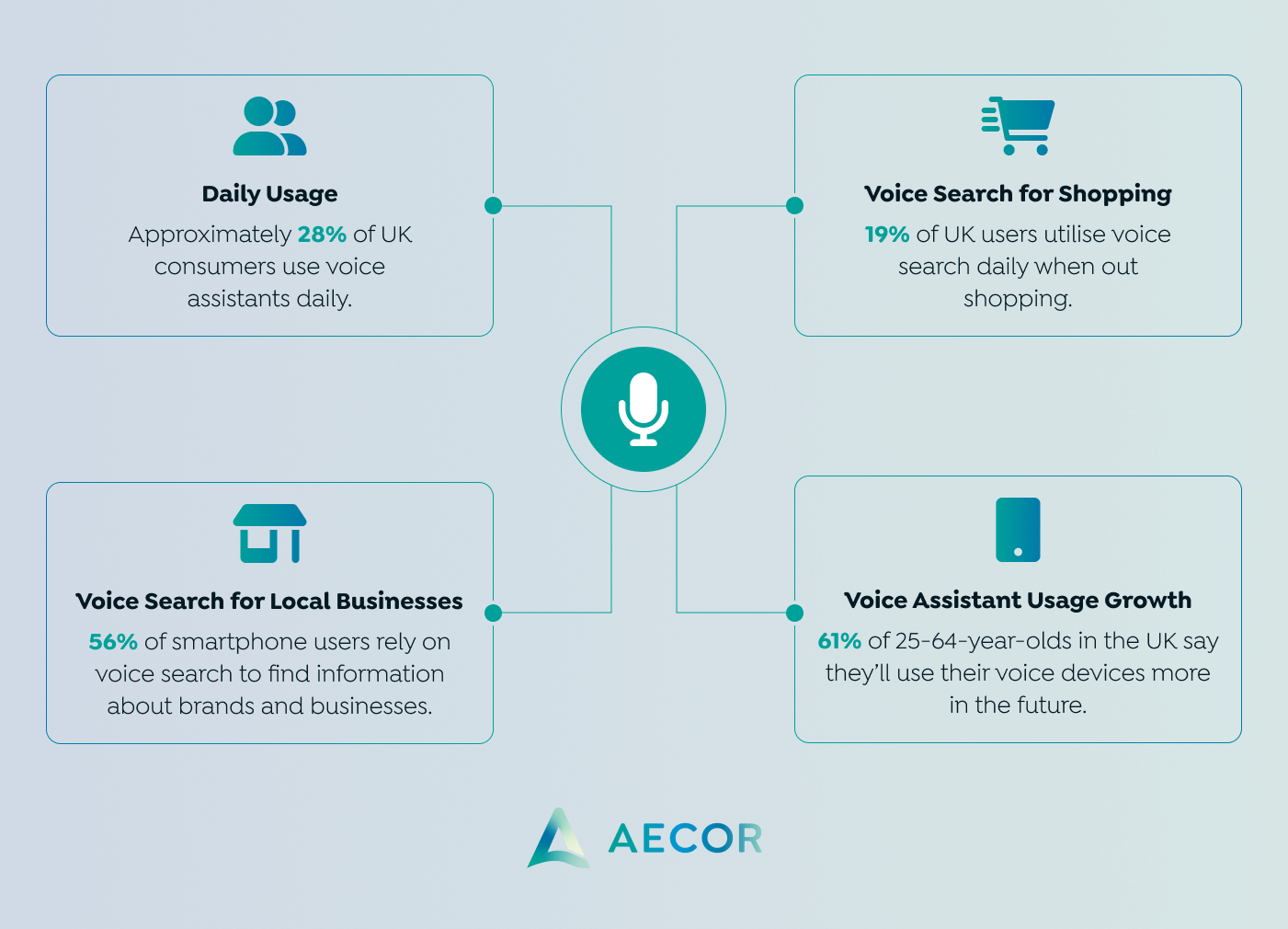AI for E-Commerce: How It’s Transforming the Future

In today’s hyper-competitive online marketplace, Artificial Intelligence (AI) has become indispensable for retailers who want to keep up with evolving customer expectations and technological advancements. From personalising shopping experiences to streamlining operations, AI empowers businesses to create smarter, more engaging, and efficient e-commerce platforms. In this comprehensive article, we’ll explore how AI is reshaping e-commerce and what the future might hold for online retailers who embrace its potential.
The Personalised Shopping Experience: Moving Beyond Basic Recommendations
In a world where customers value individualised experiences, AI enables retailers to go beyond generic suggestions by providing highly-personalised recommendations that reflect each shopper’s unique preferences and habits. AI’s ability to analyse vast amounts of data—from purchase history and browsing behaviour to demographic and psychographic insights—allows businesses to tailor every interaction.
Personalised Product Recommendations
Gone are the days when e-commerce platforms simply displayed popular items. With AI, recommendations are now tailored to reflect customers’ tastes, resulting in a 20-30% increase in revenue on average for retailers who implement personalised suggestions. The AI algorithms constantly learn from customer feedback and adapt, making suggestions increasingly relevant over time. These personalised interactions create a memorable shopping experience and foster customer loyalty.
AI-Driven Customer Profiles and Dynamic Content
AI goes further than simple recommendations by building in-depth customer profiles that help brands understand consumer behaviour at a granular level. These profiles enable dynamic content, where website elements such as banners, product displays, and promotional messages adjust based on individual shopper insights, making each visit unique and engaging.
AI Chatbots and Virtual Shopping Assistants: Revolutionising Customer Service
AI-powered chatbots and virtual assistants have fundamentally transformed customer service by providing real-time support without human intervention. Today’s AI chatbots are capable of handling complex queries, assisting with product recommendations, and even processing refunds or exchanges. The result? Enhanced customer satisfaction and a reduced burden on human support staff.
Round-the-Clock Support and Customer Engagement
AI chatbots offer immediate assistance, providing a seamless experience for customers who may have questions outside of business hours. These bots can answer FAQs, guide users to relevant products, and even perform complex tasks like resolving disputes. For the e-commerce industry, AI-driven chatbots represent a shift towards autonomous, yet highly personalised, customer interactions.
Increased Conversion Rates with Virtual Assistants
AI-powered virtual shopping assistants are similar to personal shoppers in physical stores. They guide customers through their buying journey, offering suggestions and answering questions in real-time. Virtual assistants not only improve engagement but have been shown to increase conversion rates by ensuring customers find what they’re looking for without getting frustrated.
Visual and Voice Search: Evolving Discovery Tools
With advancements in image recognition and voice processing, AI is making product discovery more accessible and intuitive. Visual and voice search are particularly useful in e-commerce, as they enable customers to find exactly what they need without the hassle of typing keywords.
Visual Search
Visual search technology allows customers to upload images to find similar products on a retailer’s platform. For instance, a user might upload a photo of a shirt they like, and the AI will recommend items that resemble it. This simplifies the shopping experience and is particularly valuable for shoppers who struggle to describe their desired product in words. Visual search leverages AI to match patterns, colours, and shapes, making shopping more seamless and enjoyable.
Voice Search
Voice-activated shopping is becoming increasingly popular, especially with the rise of smart speakers like Amazon Echo and Google Home. Voice search allows users to perform searches and place orders hands-free, a feature that appeals to busy consumers. To accommodate this trend, e-commerce businesses are adapting their platforms for voice search, focusing on conversational language and optimised content. Voice search also influences SEO strategies, as it requires more natural, question-based phrasing than traditional text search.
Predictive Analytics: Inventory Management and Demand Forecasting
Effective inventory management is crucial for e-commerce businesses, and AI has emerged as a powerful tool in this area. By analysing historical data, seasonal trends, and even social media sentiment, AI can predict demand and optimise inventory levels to prevent stockouts and overstocks.
Inventory Optimisation
AI-powered predictive analytics helps e-commerce platforms forecast demand with high accuracy. This is essential in managing inventory levels, reducing the likelihood of stockouts that could lead to lost sales, or overstocks that increase storage costs. By knowing which products will likely be in demand, businesses can ensure they have sufficient stock on hand without holding excess inventory.
Reducing Stockouts and Overstocks
AI-driven demand forecasting reduces inefficiencies in the supply chain by ensuring that inventory is well-balanced across all product categories. This capability is particularly valuable during peak shopping seasons, as retailers can use predictive analytics to avoid costly stock shortages or surpluses, leading to greater customer satisfaction and lower operational costs.
Dynamic Pricing Strategies: Real-Time Adaptability
Dynamic pricing is another area where AI has had a major impact. Traditional pricing models struggle to keep up with rapidly changing market conditions, but AI-enabled dynamic pricing allows businesses to adjust prices in real-time based on factors like competitor pricing, demand fluctuations, and customer purchasing behaviour.
Real-Time Pricing Adjustments
AI can analyse thousands of data points in real-time, adjusting prices to reflect current market conditions and optimise profit margins. By using algorithms that consider competitor prices, demand trends, and even customer location, businesses can remain competitive without constantly monitoring the market manually.
Understanding Customer Price Sensitivity
AI also helps businesses understand how different customer segments respond to price changes, allowing for more targeted pricing strategies. By tailoring prices based on customer behaviour and preferences, e-commerce companies can boost sales while maintaining customer loyalty.
Fraud Detection and Prevention: Enhancing Security in Online Transactions
With online shopping comes the risk of fraud, making AI-driven security solutions vital for e-commerce platforms. AI excels at identifying unusual patterns and blocking suspicious activities, ensuring that customer data and transactions remain secure.
Transaction Monitoring and Anomaly Detection
Machine learning algorithms can flag unusual activity in real-time, such as multiple purchases from different locations in a short period, which may indicate fraud. By analysing historical data, these systems become better at recognising and preventing new forms of fraud.
Customer Trust and Data Protection
AI’s role in fraud prevention extends beyond detection to include building customer trust. By providing a secure shopping environment, AI enables businesses to protect customers’ personal data, an essential factor in fostering long-term customer relationships.
Sentiment Analysis: Understanding Customer Feedback and Preferences
Sentiment analysis uses AI to gauge how customers feel about a product or service based on reviews, feedback, and social media posts. By processing large volumes of unstructured data, AI-powered sentiment analysis helps retailers understand what customers like or dislike.
Analysing Reviews and Social Media Comments
Sentiment analysis enables businesses to measure brand perception in real-time. By examining reviews and comments, AI can identify common themes and trends, allowing businesses to adapt products and marketing strategies accordingly.
Improving Product Offerings Based on Sentiment
By analysing customer sentiment, e-commerce platforms can refine their product offerings to better align with customer preferences. This proactive approach to customer feedback results in a more positive brand image and a more satisfied customer base.
Enhancing Product Discovery with AI-Powered Search
Finding the right product can be challenging on large e-commerce sites, but AI-driven search functionality is making it easier for customers to locate what they want quickly.
Semantic Search and Relevance
AI-based semantic search interprets the intent behind customer queries, helping users find relevant products even if their search terms are vague or misspelled. This improves the user experience and increases the likelihood of conversion.
Improving Search Accuracy with Machine Learning
As customers use the search function, AI learns from these interactions and improves search accuracy over time, leading to more relevant results and a better overall experience.
Customer Retention Through Predictive Behaviour Analysis
Retaining existing customers is as important as acquiring new ones, and AI helps e-commerce businesses keep customers engaged by predicting their behaviour and preferences.
Identifying At-Risk Customers
AI can identify signs that a customer might stop purchasing, such as decreased engagement or prolonged periods of inactivity. This allows businesses to take proactive steps, like sending targeted offers, to re-engage these customers.
Tailoring Retention Strategies
By analysing past behaviour, AI can create retention strategies that resonate with individual customers. This might include loyalty programmes, personalised discounts, or reminders, all aimed at keeping customers connected to the brand.
Augmented Reality (AR): Making Online Shopping More Interactive
Augmented Reality (AR) adds a layer of interactivity to the online shopping experience, allowing customers to visualise products in real-world settings. This immersive technology has significant potential for e-commerce, especially for categories like fashion and home decor.
Virtual Try-On Features
With AR, customers can see how clothes, accessories, or even furniture will look before making a purchase. This increases confidence in the buying decision and reduces return rates, creating a smoother shopping experience.
Enhancing Customer Engagement with AR
AR not only boosts buyer confidence but also enhances engagement, as customers spend more time interacting with products they can visualise in their own space.
Embracing AI for Sustainable E-Commerce Practices
As consumers become more eco-conscious, e-commerce platforms are turning to AI to help adopt sustainable practices. AI-driven insights can reduce waste, optimise resources, and align operations with environmental goals.
Reducing Carbon Footprint
AI helps retailers make data-informed decisions that reduce waste. For example, AI can forecast demand accurately, reducing the risk of excess inventory that ultimately goes to waste.
Meeting the Demands of Eco-Conscious Consumers
Sustainability is no longer optional for many shoppers. By using AI to adopt greener practices, e-commerce brands can cater to eco-conscious consumers and build a positive brand reputation.
The Future of AI in E-Commerce: What Lies Ahead
The integration of AI in e-commerce is just the beginning. As AI technology continues to evolve, so will the capabilities and possibilities for online retailers. From the rise of hyper-personalisation to the development of AI-driven, immersive shopping experiences, the future of e-commerce looks bright for businesses that embrace AI.
In the coming years, we can expect AI to enable even more sophisticated customer interactions, smarter inventory management, and more sustainable business practices. For retailers, the journey towards a fully AI-integrated e-commerce ecosystem offers a transformative opportunity to stay competitive, drive customer loyalty, and lead the future of retail.
With AI at the helm, e-commerce is poised to reach new heights, delivering experiences that are not only personalised and efficient but also sustainable and secure. Businesses that harness the power of AI today will set the standard for tomorrow’s online shopping experiences, paving the way for a smarter, more connected future.
What our clients say














